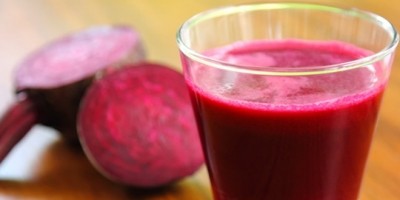Nitrates show metabolic benefits: RCT data

Researchers from the Karolinska Institutet and The Swedish School of Sport and Health Sciences report that a three day intervention with sodium nitrate decreased the resting metabolic rate in the healthy volunteers by 4.2%, compared with placebo.
The dose of nitrate used in this study was the equivalent to that consumed in 200 to 300 grams of spinach, 2-3 beetroot, said the researchers.
The same research team have previously reported that nitrate may increase the efficiency of human mitochondria, and this is proposed to explain the reductions to the resting metabolic rate observed in the new study, they explained in the American Journal of Clinical Nutrition.
“Another dietary intervention that has a similar effect on energy metabolism is caloric restriction (CR),” wrote the researchers. “Although different studies have yielded somewhat divergent results, CR in humans seems to be associated with a reduced resting metabolic rate and favorable metabolic adaptations linked to reduced risk of cardiovascular disease.”
Until recently nitrate – which is abundant in green leafy vegetables – had been considered merely as an inert end product of nitric oxide (NO) metabolism or as a potentially toxic constituent in our diet.
However, the last decade has brought understanding of its importance in biological processes, including regulation of blood flow, blood pressure, cellular signaling, glucose homeostasis, and tissue responses to low oxygen levels (hypoxia). In addition, epidemiological studies have linked the intake of green leafy vegetables to a reduction in the risk of cardiovascular disease.
“In this context, CR is the only dietary intervention model that consistently increases the life span in a wide range of animal models,” they added. “To our knowledge, such studies have not been performed with dietary nitrate.”
Study details
The Swedish researchers recruited 13 healthy people to participate in their randomized, double-blind, crossover study. Participants randomly consumed sodium nitrate or sodium chloride (as placebo) for three days.
Results showed a 4.2% reduction in the resting metabolic rate following nitrate consumption for three days, compared to placebo.
Furthermore, no significant changes were observed for thyroid hormone status, insulin sensitivity, glucose uptake, and several other measures.
“A sustained reduction in the resting metabolic rate of 4% might have implications for body-weight regulation,” wrote the researchers. “Indeed, the calculated weight gain over a 1-y period would amount to about 4 kg if not compensated for by a lowered energy intake. However, on the basis of the established protective effects of green leafy vegetables against a number of major diseases, it is not advisable to reduce the intake of vegetables in an attempt to control weight. In this context, it is tempting to speculate that the lowering of the metabolic rate by nitrate in vegetables represents an evolutionary favorable metabolic response to preserve energy.”
Source: American Journal of Clinical Nutrition
Published online ahead of print, doi: 10.3945/ajcn.113.079491
“Dietary nitrate reduces resting metabolic rate: a randomized, crossover study in humans”
Authors: F.J. Larsen, T.A. Schiffer, B. Ekblom, et al
















